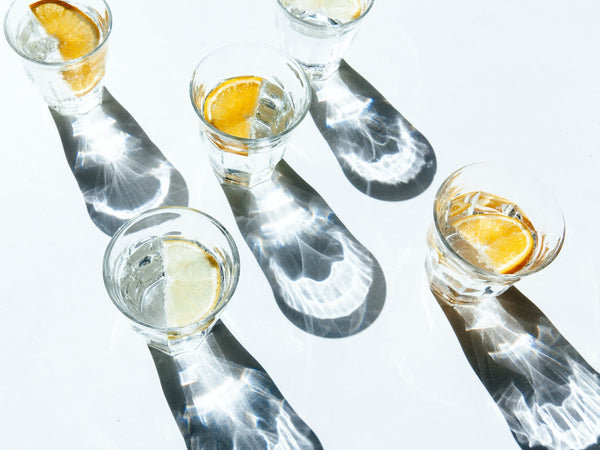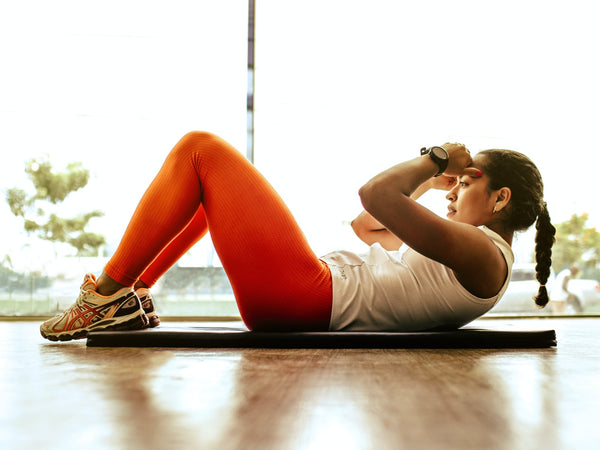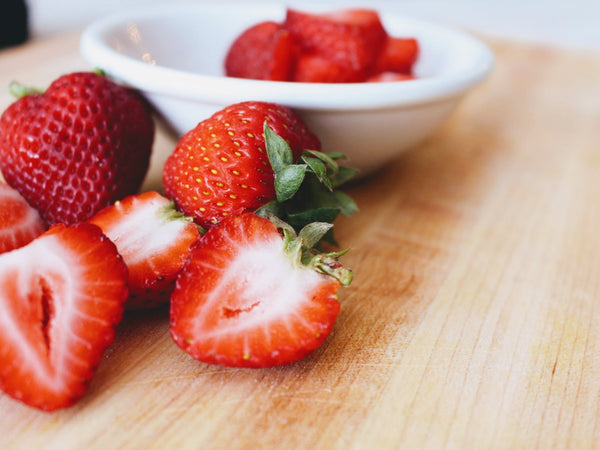At some point, just about everyone has been told that they need to stay hydrated if they want to be healthy and feel their best.
What does “stay hydrated” mean, though? How can you tell if you’re actually hydrated? What happens if you aren’t properly hydrated?
Read on to learn the answers to these and other pressing hydration questions.
Common Hydration Myths
You’re probably familiar with the concept of hydration. You probably also believe that it’s important. However, there’s also a good chance that you’ve fallen for a hydration myth (or two) in the past. The following are some of the most popular ones that need to be debunked:
Caffeine Causes Dehydration
You aren’t destined for dehydration just because you drink a cup of coffee (or two or even three) in the morning.
It’s true that caffeine is a diuretic, but its effects are mild. As long as you stay below the safe upper limit for caffeine (about 400 milligrams per day), you likely won’t experience any dehydration symptoms [1].
You Only Need to Drink Water When You’re Thirsty
When you start feeling thirsty, that’s a sign that your body is already mildly dehydrated [2]. That’s why it’s important to be proactive when it comes to your fluid intake. Otherwise, you’ll likely find that you’re always playing catchup throughout the day.
The More Water You Drink, the Better
Water is good for you. There’s no denying it. However, it is also possible to drink too much water.
If you over hydrate and take in more water than your body can use and excrete, you could experience electrolyte depletion and acute water toxicity [3]. Signs of overhydration include nausea, vomiting, fatigue, muscle cramps, and an irregular heartbeat.
Sports Drinks Are Better Than Water
It’s true that you need to think about your electrolyte balance if you want to be truly hydrated [4]. However, traditional sports drinks, which do contain electrolytes but also typically contain large amounts of sugar, aren’t necessarily the answer. There are other ways to get electrolytes without drinking a potentially large intake of sugar and calories.
Everyone Needs 8 Cups of Water Per Day
Eight cups of water per day is a good starting point. In reality, though, research shows that the average person needs more fluids than this per day to feel their best and maximize their health.

Reports suggest that 11.5 cups of fluids per day for women and 15.5 cups for men is a better goal to aim for [5].
Signs of True Hydration
Have you fallen for any of these myths? If so, you’re not alone.
It’s important to separate fact from fiction, especially when it comes to our fluid intake. Believing in these myths could get in the way of you experiencing true hydration.
What does true hydration look like? How can you know if you’re actually staying hydrated?
Here are some signs of proper hydration to watch for [6, 7, 8]:
- Your urine is light yellow or medium yellow in color
- You’re urinating once every 3-5 hours throughout the day
- Your skin is elastic and bounces back into place when pinched
If these signs apply to you, there’s a good chance you’re achieving an appropriate level of hydration throughout the day.
Signs of Dehydration
You should know how to spot proper hydration. At the same time, though, it’s also important to know what dehydration looks like.
The following are some potential indicators of dehydration that you ought to watch for [9]:
- Your urine is dark yellow or amber in color
- Your urine production has decreased
- You have a dry mouth, swollen tongue, and/or bad breath
- You feel sluggish or fatigued
- You’re craving sugar
- You feel confused, dizzy, or have heart palpitations (these are signs of severe dehydration)
If you think you’re dealing with severe dehydration, be sure to talk to your doctor. Don’t just chug some water and hope for the best. A doctor can help you address the problem right away and come up with a plan so that it’s less likely to happen again.
Benefits of Proper Hydration
What happens when you make hydration a priority? A lot of good things, actually. The following are some of the top benefits of proper hydration:
Better Workout Performance
Whether you’re an elite athlete or an average gym-goer, proper hydration will help you perform your best during every workout or event.

If you’re not well hydrated, you might be more prone to fatigue, muscle cramps, and a lack of motivation, all of which will take a toll on your performance and could even increase your injury risk [10].
Increased Energy
Even if you’re not an athlete, you probably still want to experience a good amount of energy throughout the day. Nobody wants to feel tired and sluggish, right?
When you make hydration a priority, you’ll likely find that you feel more alert, both physically and mentally [11]. This has to do, in part, with the fact that your body has to work harder to carry out various processes when it’s not receiving a sufficient amount of fluids.
Better Brain Function
Speaking of mental alertness, proper hydration can actually improve your brain function and memory, too.
The results of one study revealed that just a small amount of fluid loss (1.6 percent) had a negative impact on working memory. It also increased the test subjects’ anxiety and fatigue [12].
Fewer Headaches
If you experience headaches often, dehydration might be part of the problem. One study of 393 people showed that 40 percent of participants experienced a headache when they became dehydrated [13].
By prioritizing proper hydration and being proactive about your fluid intake, you may be able to reduce your chances of dealing with headaches as frequently as you might be right now.
Better Digestion
If you’re dehydrated, you’re more prone to digestive issues like constipation [14]. This happens because your body needs water to keep everything moving properly through the digestive system.
When you up your fluid and electrolyte intake, you can stay hydrated and make sure that your digestion is as efficient as possible.
Faster Weight Loss
Finally, proper hydration can help you in your weight loss efforts.
One study showed that people who drank water before a meal lost 44 percent more weight over a 12-week period than those who did not [15].
No, drinking more water will not magically cause you to shed weight. However, it may help to curb cravings (especially sugar cravings) and make it easier for you to resist the urge to overeat. All of this, in turn, reduces your calorie intake so you can reach your weight loss goals faster.
Tips for Staying Hydrated
Okay, you know what proper hydration looks like and why you ought to strive for it. How do you get there, though? What kinds of practices can you implement into your daily routine to boost your hydration?
Here are some ideas to help you get started:
Set Attainable Goals
If the idea of drinking 11.5 or 15.5 cups of fluids per day feels daunting, start with a more attainable hydration goal. Even though there’s nothing magical about the 8 cups a day myth, drinking 8 cups of fluids is still better than only drinking one or two.
Eat More Hydrating Foods
Don’t forget that foods can be hydrating, too.

Foods like cucumbers, watermelon, strawberries, tomatoes, and lettuce all contain water and can help you stay hydrated [16]. You can eat them on your own, add them to your meals, or even chop them up and toss them in water (fruit is probably better for this than tomatoes or lettuce).
Add Flavor to Your Water
Fresh fruit not only provides some extra hydration, but it can also improve the flavor of your water. If plain old water just doesn’t cut it, adding in a little flavoring is a great way to make it more enjoyable and improve your hydration.
Don’t Forget About Electrolytes
If you’re an athlete, an active individual, or someone who is prone to dehydration, electrolyte drink mixes (like some of our favorites!) are a good tool that help you boost your electrolyte intake without having to do a lot of calculating or measuring. Just toss a packet in your water and drink up.
Pair Hydration with Another Habit
Do you find yourself often forgetting to drink water? Try pairing it with another habit that you already practice on a regular basis. This is known as habit stacking [17].
For example, maybe you can drink a glass of water right after you brush your teeth in the morning. You could also make it a habit to drink a glass of water before each meal. As an added bonus, this may also help you to avoid overeating.
You Know What “Proper Hydration” Means: Now What?
Now that you have a clearer idea of the true “stay hydrated” meaning, it’s time to turn your knowledge into action. Keep this information in mind and use it as motivation to properly hydrate yourself. That way, you can experience all the health and wellness benefits that hydration has to offer.















